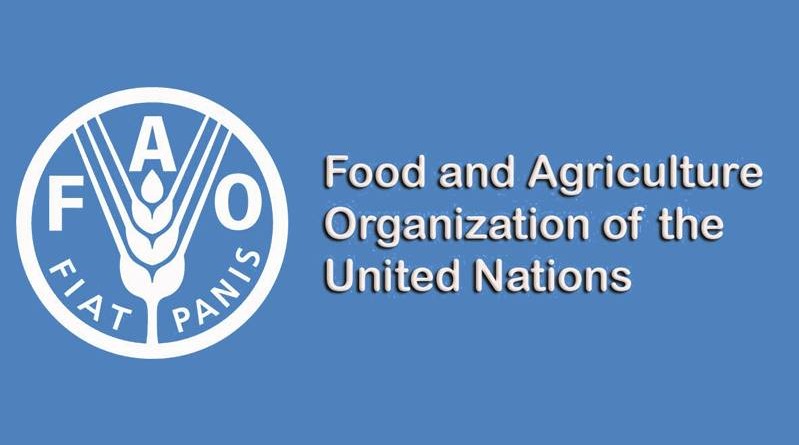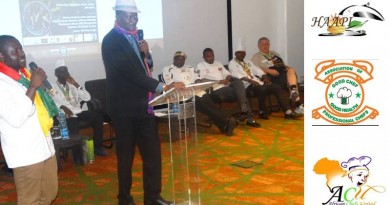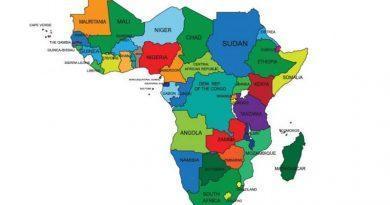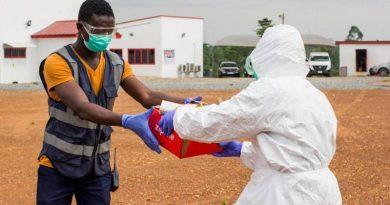FAO’s seed fair links farmers to certified quality seed in northeastern Nigeria
Gombi local government area lies two hours outside Yola, the capital of Adamawa, and a mere three-hour drive to Cameroon.
Nearly all residents farm on some scale, with maize, sorghum, cowpea and groundnut among the most commonly grown and traded crops. When her village was attacked, Adama Aliyu, a 25-year-old mother of three fled Gombi for similarly named Gombe State.
She returned with her family in 2018 after years as an internally displaced person, unable to produce enough food.
“I couldn’t farm much, there were times when I had to sell my seeds to buy food. I hardly had enough seeds to plant,” she said. Aliyu was among the first of a total of 5 000 to receive seed and fertilizer in a series of seed fairs organized by FAO in northeastern Nigerian states of Yobe and Adamawa between 1 and 15 June.
Aliyu and others were supplied with vouchers, which they used to select their preferred seed in an open market setting. The fairs brought vendors and famers together, allowing FAO-trained outgrowers to directly market to farmers.
Aliyu selected her choice of groundnut seed, a high-value cash crop across northeastern Nigeria, traditionally farmed by women. However, increasing profits have made the crop desirable across gender lines. “The seeds I got look big and clean so I believe they will give me a good amount of crops,” she said.
Farmers participating in the seed fairs were selected based on their need for farming inputs like seed and fertilizer, their access to land and ability to farm during the 2019 rainy season. Vouchers were used to redeem the seeds of staple crops like millet, sorghum and cowpea as well as high-value cash crops like groundnut.
To enhance household nutrition, FAO developed specific vegetable kits including okra and amaranth seed for all farmers. A 25-kg bag of NPK fertilizer was also given to each of the 5 000 participants.
In 2018, FAO hosted its first-ever seed fair in northeastern Nigeria, in Nangere, Yobe State, reaching 630 farmers.
In 2019, FAO increased its seed fair eight-fold: 4 000 farmers in Potiskum and Fune local government areas participated in Yobe and 1 000 in Gombi, Adamawa. The Directorate-General for European Civil Protection and Humanitarian Aid Operations, the Government of Norway and the Swedish International Development Cooperation Agency financed the 2019 seed fairs.
Prior to the fair, FAO supported community-based seed production initiatives in Adamawa, Borno and Yobe States.
Partnering with the International Crop Research Institute for the Semi-Arid Tropics, FAO supported 23 seed producer groups (450 farmers) with foundation seed across the three states, enabling groups to produce adapted and locally preferred seeds of millet, sorghum, maize, cowpea and groundnut.
The groups produced a total of 306 tonnes of the five different seed varieties, boosting the availability of quality declared seeds at community level.
Ibrahim Hamidu Kida, an outgrower from Hawul, Borno State, marketed cowpea at the Gombi seed fair. “I am proud to have my cowpea present because of its superior quality and I believe it will help farmers during the rainy season,” Kida said. He also noted that his cowpea and maize, produced from FAO foundation seed, was in high demand and appreciated by farmers in Hawul. Yalwa Mamudo, a retiree from Damaturu, Yobe State, shared that the 2018 seed fair was the launchpad for his seed production business. “After the 2018 seed fair, my customer base increased. I believe this will happen again after this seed fair.”
“FAO tries as much as possible to source all of its seed and other agricultural inputs locally. Nearly 100 percent of the seed for the rainy season, our largest programme, is locally sourced from Nigerian companies. FAO is also building the capacity of local seed producers to enable access to certified, high yielding and locally adapted seed in the most vulnerable communities,” said Suffyan Koroma, FAO Representative in Nigeria.
In preparation for the seed fair, FAO met with the outgrowers to ensure that the seed they produced was of high quality.
The Organization undertook numerous quality checks at various phases of production to ensure compliance with both FAO’s standards as well as those of Nigeria’s National Seed Council. To support logistics, FAO contracted the Civil Society Coalition for Poverty Evaluation in the implementation of the seed fairs.
In 2019, FAO is seeking USD 32.4 million to assist 1.3 million people whose livelihoods depend on agriculture. Of this amount, only USD 3.4 million has been received so far.





This information is very interesting inspiring, but how can some in Bauchi like Myself can benefit on your programme?
I work with Nozong youth Empowerment initiative base in Bauchi state North east Nigeria on women and youth Empowerment that most of are into agriculture as their main lively-hold. detail as you can see below.